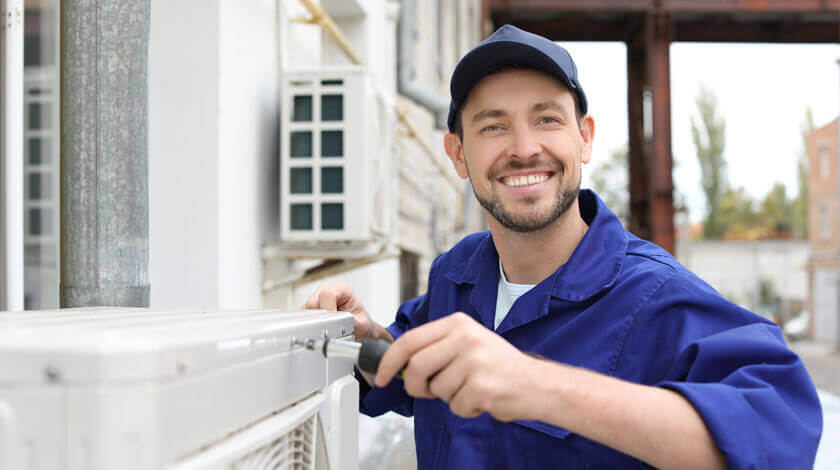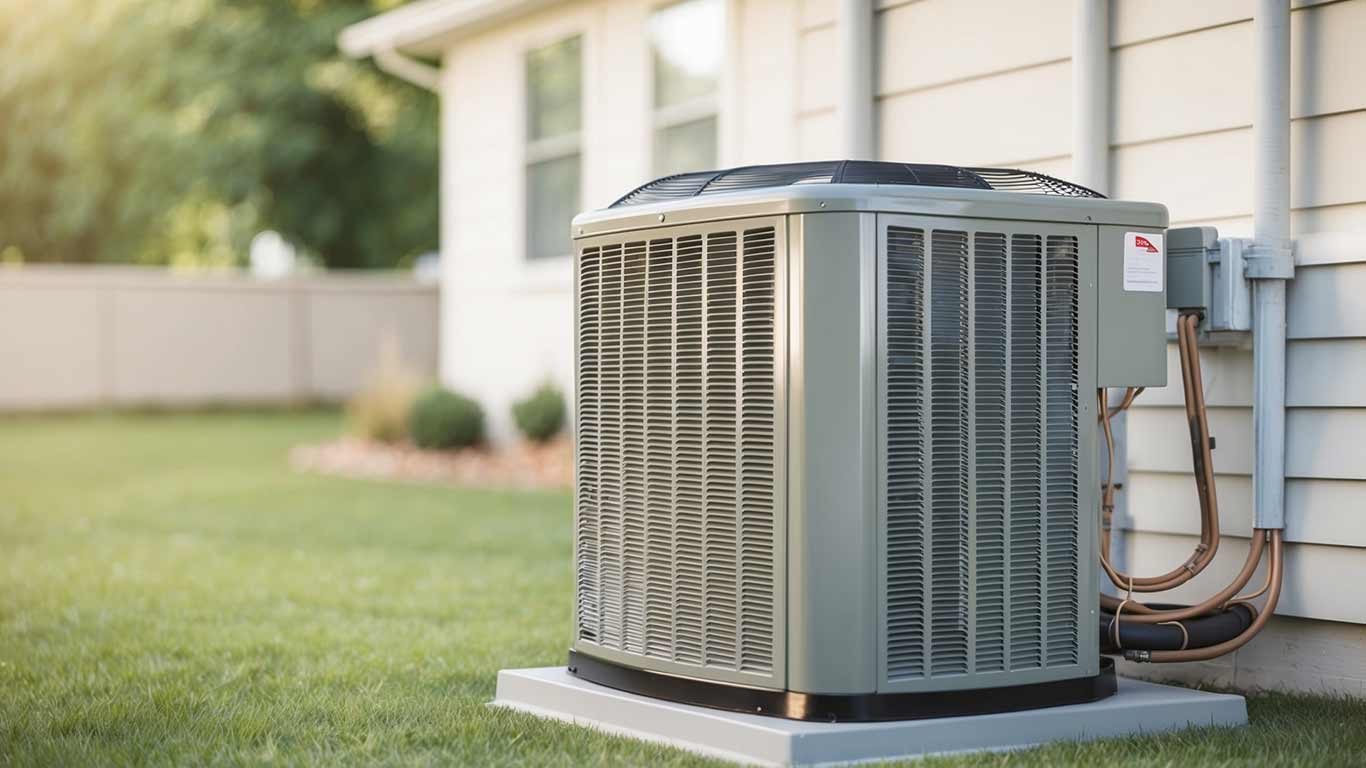
Canoga Park HVAC Maintenance: Coil Cleaning, Filter Replacement, and More
Residents in Canoga Park expect fast cooling on a 95-degree afternoon and steady heat on a chilly Valley night. That comfort depends on a system that is clean, tuned, and moving air the way it should. An HVAC tune-up in Canoga Park is about safety, energy savings, and fewer surprise breakdowns during peak weather. Season Control Heating & Air Conditioning has serviced thousands of systems across the West Valley; patterns repeat, and small issues become big repairs when ignored.
Why regular tune-ups matter in Canoga Park
Local dust, tree pollen, and summer heat strain coils, motors, and capacitors. A light layer of dirt on an evaporator coil can reduce cooling capacity and push run times higher. A clogged filter can ice the coil and flood the secondary drain pan. On the heating side, a cracked igniter or dirty flame sensor leads to short cycling and comfort swings. The fix is routine care that keeps components clean and readings within manufacturer specs.
Homeowners in Canoga Park, Winnetka, West Hills, and Woodland Hills see better results when tune-ups are scheduled before peak seasons. Systems run smoother, utility bills stabilize, and the service life stretches past the typical 10 to 12-year range.
What happens during an HVAC tune-up Canoga Park
A proper tune-up is not a quick rinse of the outdoor unit. It is a methodical check that documents readings and corrects what drags performance down. Season Control techs follow a standardized process and adjust for system type, age, and home layout.
- Coil cleaning: outdoor and indoor
- Filter replacement and airflow verification
- Refrigerant evaluation with superheat or subcool readings
- Electrical testing for capacitors, contactors, and motors
- Safety checks: gas pressure, ignition sequence, and drain protection
That list is the spine of the visit. The value comes from the measurements and the judgment behind them.
Coil cleaning done right
Dirty coils are the most common cause of high bills in the Valley. The outdoor condenser coil dumps heat into the air; compacted lint and dust act like a blanket. The indoor evaporator coil absorbs heat; kitchen grease, pet dander, and fine dust glue to its fins. Cleaning both restores heat transfer and lowers head pressure.
Field reality: garden-hose spray on the condenser helps, but it misses matted debris at the base of the coil. A tech should remove the top, protect the fan motor, and rinse from the inside out with the right coil cleaner. For the evaporator coil, access matters. If the coil is above a furnace in a closet off Owensmouth Ave, removal may require opening a panel and protecting the area. In mild cases, a no-rinse cleaner and careful brushing fix it. If the coil is impacted, removal and offsite cleaning may be the furnace tune-up Canoga Park seasoncontrolhvac.com only honest option. Expect 1 to 2 hours for standard cleaning and longer if access is tight.
Homeowners often ask how clean is clean enough. Fin spacing should be clear to light, and static pressure should drop after cleaning. A post-clean delta-T of roughly 18 to 22°F in cooling under typical indoor conditions is a good sign.
Filter replacement: small part, big effect
Filters plug fast in Canoga Park homes near Sherman Way and Victory Blvd due to traffic dust and seasonal winds. A MERV 8 to 11 pleated filter suits most systems. High-MERV filters can choke airflow if the return is undersized. The right call depends on the return duct size, blower strength, and allergy needs.
Signs of a filter problem are subtle. Whistling at the return grille, rooms that never cool, blower noise at startup, or a sudden ice-up on a hot day point to restriction. During a tune-up, the tech checks filter fit, confirms air direction arrows, and measures static pressure before and after replacement. Many 3-ton systems work best with total external static of 0.5 inches of water column or less. Higher than that means the system is pushing through a bottleneck.
Refrigerant charge and performance numbers
Guesswork on refrigerant is expensive. Overcharge raises pressure and shortens compressor life. Undercharge reduces cooling and leads to icing. Proper practice is to take line temperature and pressure, then calculate superheat or subcooling based on the metering device. With a fixed orifice, superheat guides the charge. With a TXV, subcooling is the target. Readings must be tied to indoor wet-bulb and outdoor dry-bulb conditions.
A practical check for homeowners: after a tune-up and proper charge, supply air should be 18 to 22°F cooler than return air in cooling mode. If the delta-T is outside that range, airflow, coil cleanliness, or refrigerant should be reviewed again.
Electrical components: small parts that decide your weekend
Capacitors drift out of spec with heat. Contactors pit and stick. Fan motors overheat when spattered with oil and dirt. These are $100 to $400 fixes that prevent a $2,500 compressor failure. Season Control tests microfarads under load, inspects wiring for rub-outs on service panels, and checks amp draw against nameplate. On a rooftop unit near De Soto Ave, sun exposure accelerates breakdown; proactive replacement during a tune-up can be the cheaper path.
Drainage, mold, and water damage
A clogged condensate drain can stain ceilings in a day. Slime builds in the trap and in the pan under the coil. During service, the trap should be cleared, flushed, and primed. The float switch should be tested. In homes with past water alarms, an inline cleanout and a condensate safety switch are smart upgrades. A small dose of pan treatment helps in humid spells, though it never replaces cleaning.
Furnace checks for Valley winters
Even if heat runs for shorter hours, safety counts. The tune-up includes a combustion check, flame sensor cleaning, and an inspection of the heat exchanger with mirrors or a camera where possible. Gas pressure and manifold settings should match the plate. A slight odor on first fire-up is normal dust burn-off; repeated sharp odors point to a leak or poor venting. In homes with tight construction, a carbon monoxide detector near sleeping areas is non-negotiable.
How often is enough
In Canoga Park, a twice-a-year schedule makes sense: cooling tune in spring, heating tune in fall. Homes with pets, smokers, or ongoing construction may need quarterly filter changes and a mid-season check. Vacation rentals that sit idle still need service; stagnant systems collect debris and condensate algae.
What a homeowner can handle vs. what to leave to a pro
A homeowner can replace filters every one to three months, keep the outdoor unit free of leaves and lint, and rinse the condenser coil gently from the outside. They can also set reminders for seasonal checks and keep vents open to avoid pressure spikes. Pros should handle electrical testing, refrigerant charging, sealed-coil cleaning, gas adjustments, and duct static pressure diagnostics. The tools and readings matter, and missing one step often hides the true cause.
Signs it is time to call for an HVAC tune-up Canoga Park
- Hot or cold rooms despite thermostat changes
- Ice on copper lines or a wet furnace base
- Short cycling or long run times with little temperature change
- Burning or musty odors on startup
- Spiking LADWP bills compared to the same month last year
Real results from local service
A Willowdale Street homeowner reported weak cooling and rising bills. The filter was clean, but static pressure was 0.9 in. w.c. The evaporator coil was matted on the return side. After coil cleaning, a blower speed change, and a capacitor replacement, delta-T returned to 20°F and the bill dropped by roughly 18 percent the next cycle. Another case off Strathern Street involved a rooftop unit that tripped on high pressure mid-day. The condenser coil looked clean from the outside. Internal rinse cleared a dense layer at the base. Pressures normalized and the breaker trips stopped.

These outcomes are common. They are measurable, and they hold up through the season.
Why homeowners choose Season Control Heating & Air Conditioning
Local crews know Canoga Park housing stock: slab-on-grade homes with undersized returns, condo closets with tight clearances, and older package units exposed to sun and wind. Trucks carry common capacitors, contactors, belts, and filters to avoid return trips. The team documents readings, shares before-and-after photos, and explains options without upsell pressure. If a part is borderline, the tech shows the measurement and lets the homeowner decide.
Maintenance plans lock in spring and fall visits, priority scheduling during heat waves, and member pricing on repairs. Most plans pay for themselves with one avoided emergency call.
Pricing, timing, and what to expect
A standard residential tune-up in Canoga Park typically takes 60 to 90 minutes for a split system and 90 to 120 minutes for a rooftop package unit, longer if coil access is limited. Pricing is straightforward, with any recommended repairs quoted on-site before work begins. If the system is under manufacturer warranty, Season Control checks part coverage and files what is needed to protect that coverage.

During the visit, pets can stay inside; doors are kept closed except for entry. Drop cloths go down in work areas. Power is restored and the thermostat is set back to the homeowner’s preference before the tech leaves.
Ready to schedule?
If the system struggles during Valley heat or the filter looks clean but comfort says otherwise, it is time for a professional HVAC tune-up Canoga Park homeowners can rely on. Season Control Heating & Air Conditioning services Canoga Park, Winnetka, West Hills, Woodland Hills, and nearby neighborhoods. Call to book a tune-up, request a coil cleaning, or set up a maintenance plan that fits the home and schedule. A clean, tuned system runs quieter, cools faster, and costs less to operate.
Season Control Heating & Air Conditioning provides HVAC services in Canoga Park, CA, with 24/7 heating, cooling, and air quality solutions. With over 20 years of local experience, our certified technicians handle AC installation, maintenance, furnace repair, and indoor air quality improvements. We are a certified Lennox distributor and offer repair discounts, free estimates for system replacements, and priority service appointments. Backed by more than 250 five-star Google reviews, 65 five-star HomeAdvisor reviews, and an A+ BBB rating, we are committed to reliable service and year-round comfort for Canoga Park homeowners and businesses. Season Control Heating & Air Conditioning
7239 Canoga Ave Phone: (818) 275-8487 Website: https://seasoncontrolhvac.com/service-area/hvac-service-in-canoga-park Map: View on Google Maps
Canoga Park,
CA
91303,
USA